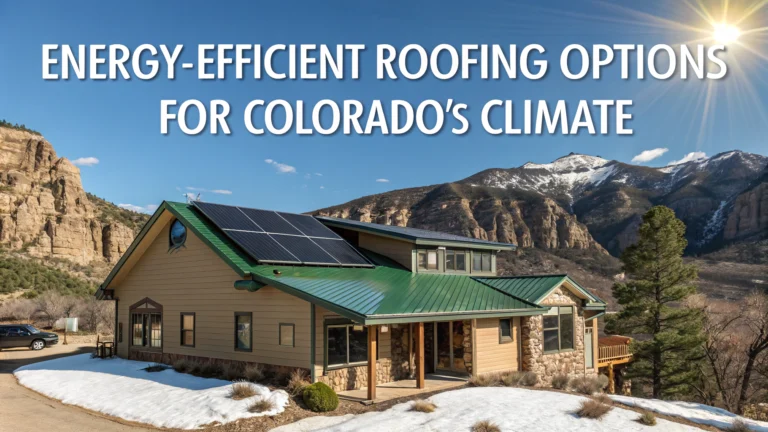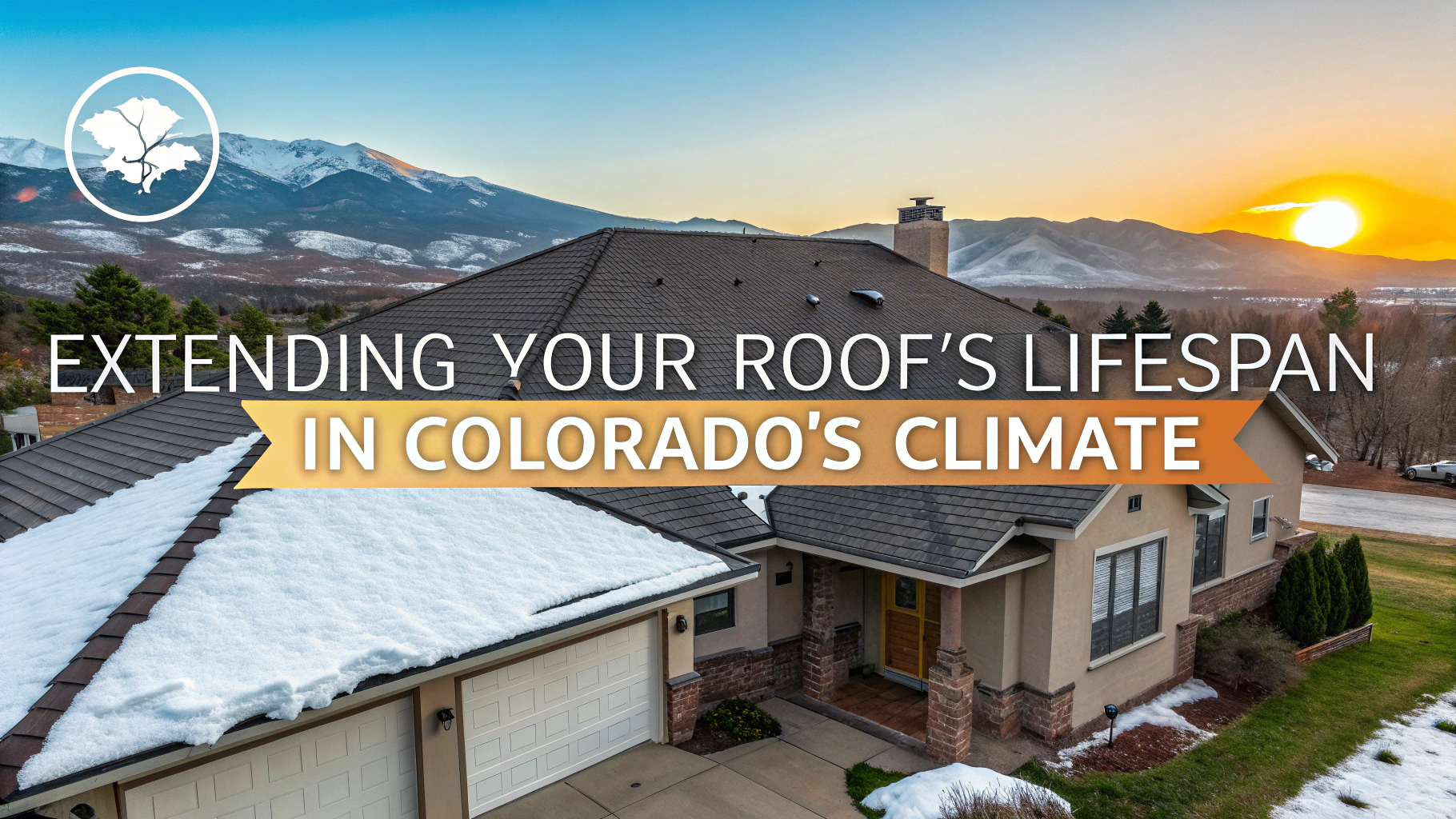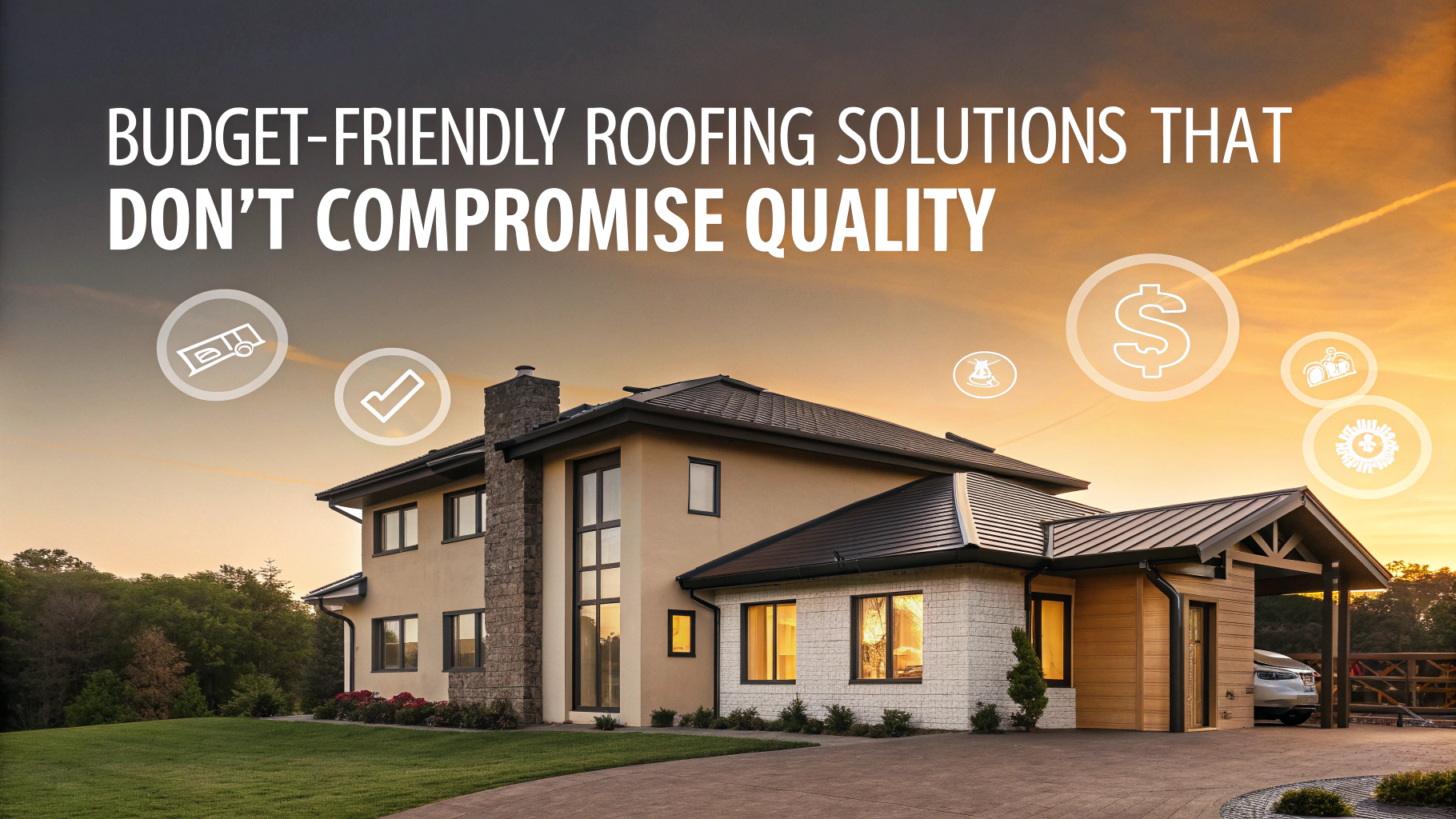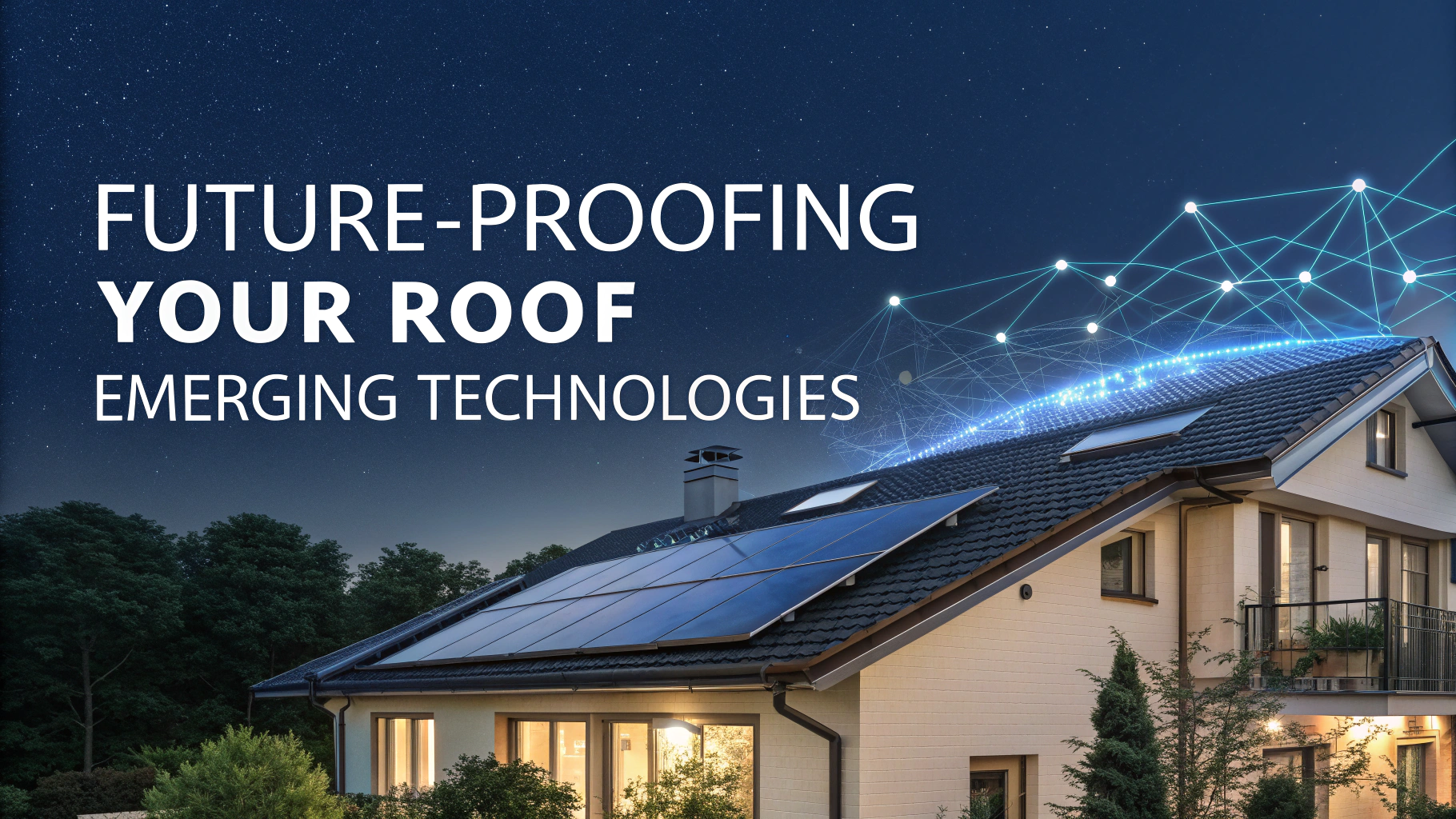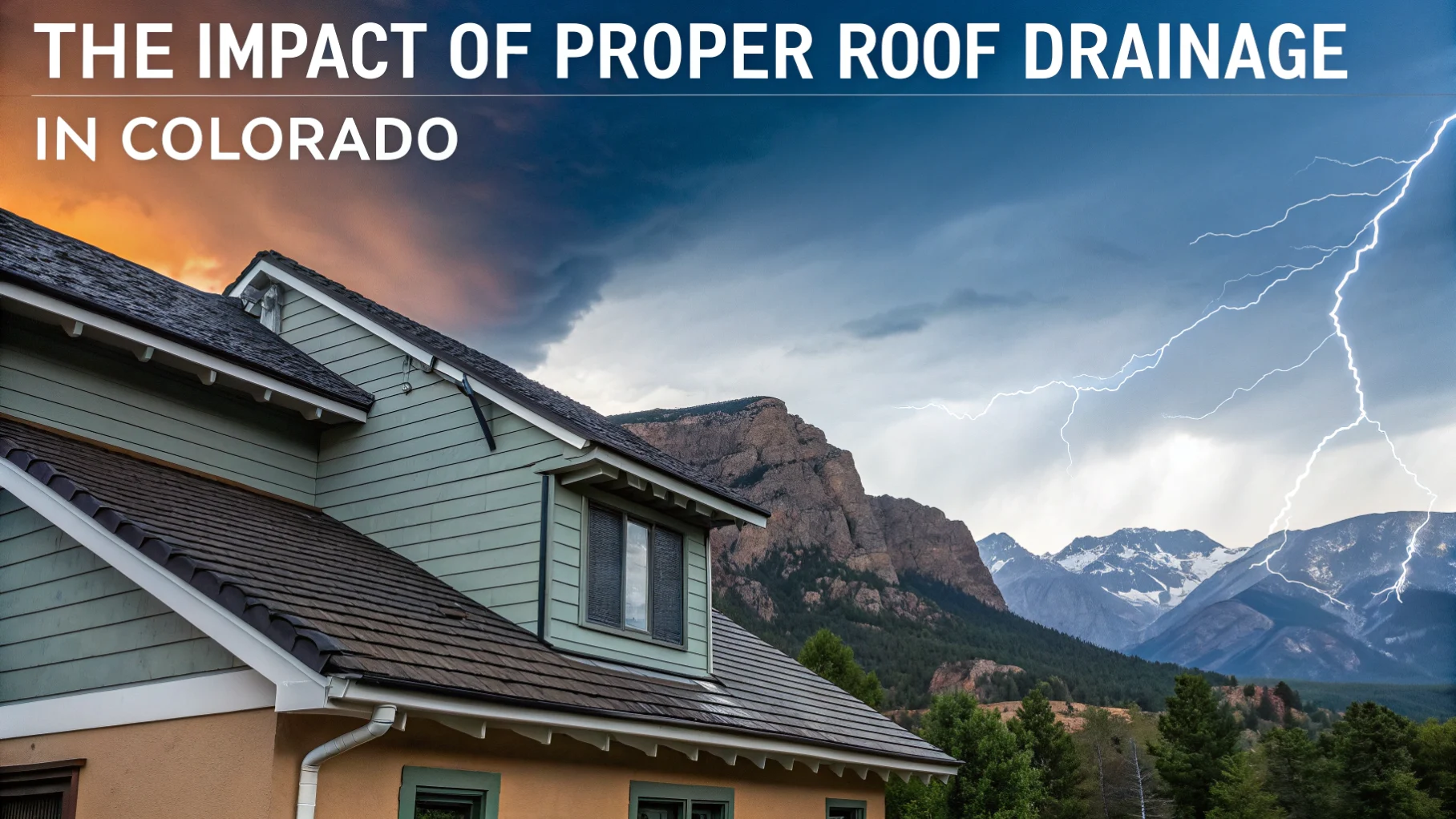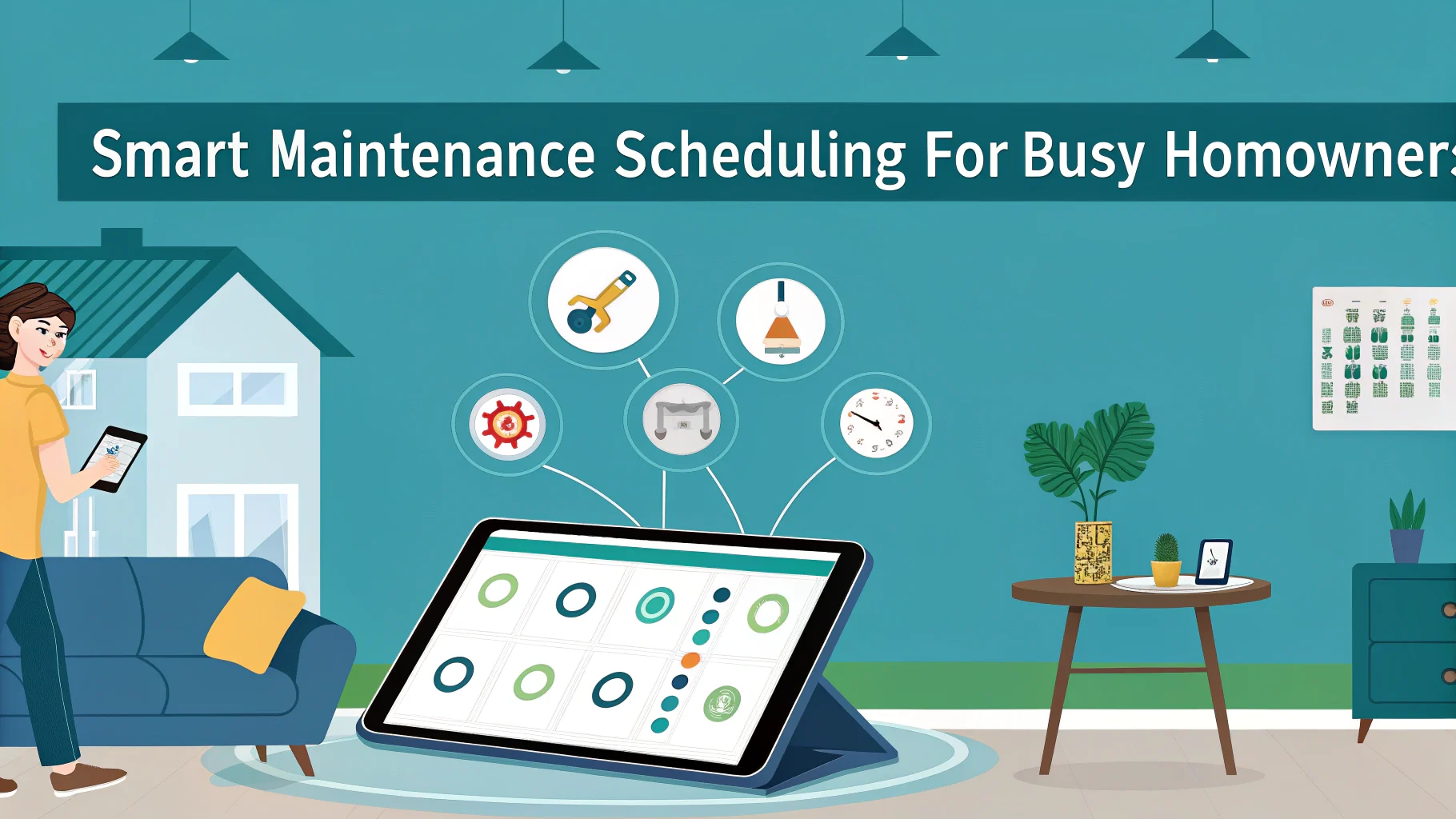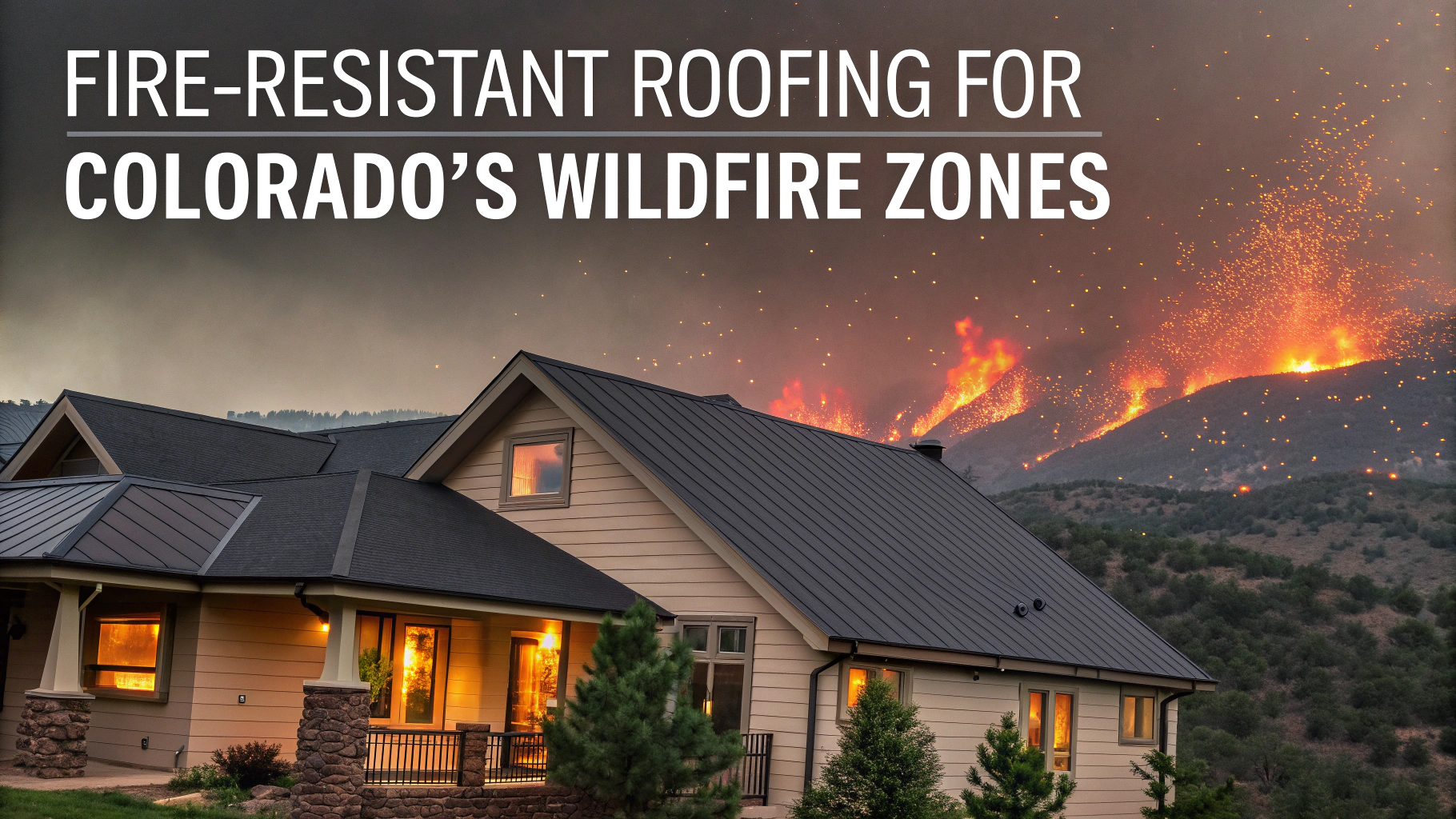Selecting energy-efficient roofing materials for Colorado homes requires careful consideration of the state’s unique climate conditions, from intense sun exposure to heavy snowfall.
The right roofing choice can significantly reduce heating and cooling costs while protecting your home from Colorado’s extreme weather patterns.
This guide explores the most effective roofing options specifically suited for Colorado’s climate, helping homeowners make informed decisions about their roof investments.
Best Energy-Efficient Roofing Materials for Colorado
- Metal Roofing
- Reflects up to 85% of solar radiation
- Excellent for snow shedding
- 50+ year lifespan
- Cost: $8-14 per square foot installed
- Cool Roof Shingles
- Special granules reflect 20-40% more sunlight
- Energy Star certified options available
- 25-30 year lifespan
- Cost: $4-7 per square foot installed
- Slate Tiles
- Natural insulation properties
- 100+ year lifespan
- Excellent durability in harsh weather
- Cost: $15-30 per square foot installed
Climate-Specific Considerations
Colorado’s elevation means more intense UV exposure, making reflective roofing materials particularly valuable.
Heavy snow loads require sturdy materials with proper pitch and insulation capabilities.
Sudden temperature changes demand materials with good thermal expansion properties.
| Climate Factor | Recommended Solution |
|---|---|
| High UV Exposure | Reflective coatings, light colors |
| Snow Load | Metal roofing, steep pitch design |
| Temperature Swings | Materials with flexibility |
Energy Savings Tips
- Choose light-colored roofing materials to reflect more sunlight
- Install proper ventilation systems to regulate attic temperature
- Add extra insulation beneath the roof deck
- Consider solar-ready roofing options for future panel installation
Professional Installation Resources
Contact the Colorado Roofing Association at (303) 484-0549 for certified contractor recommendations.
Request energy efficiency ratings and warranty information from manufacturers before installation.
Schedule annual inspections to maintain energy efficiency and extend roof lifespan.
Next Steps for Your Roofing Project
Get at least three quotes from licensed Colorado roofing contractors.
Check local building codes and HOA requirements for roofing material restrictions.
Consider timing your installation during spring or fall for optimal weather conditions.
Energy Efficiency Ratings and Certifications
Understanding energy efficiency ratings helps homeowners make informed decisions about roofing materials. Look for these key certifications:
- Energy Star Certification
- Meets strict energy performance standards
- Typically 25-40% more efficient than standard materials
- Qualifies for potential tax incentives
- Cool Roof Rating Council (CRRC) Labels
- Shows solar reflectance values
- Thermal emittance ratings
- Initial and three-year aged performance data
Maintenance Requirements
Regular maintenance ensures optimal energy efficiency performance:
- Bi-annual gutter cleaning
- Remove snow buildup exceeding 6 inches
- Check reflective coatings every 3-5 years
- Inspect seals and flashings annually
Cost-Benefit Analysis
| Material Type | Initial Cost | Energy Savings (Annual) | Lifespan ROI |
|---|---|---|---|
| Metal Roofing | High | $300-500 | Excellent |
| Cool Roof Shingles | Medium | $200-400 | Good |
| Slate Tiles | Very High | $250-450 | Very Good |
Making Your Energy-Smart Roofing Decision
Consider your long-term investment goals and specific climate challenges when selecting roofing materials. Energy-efficient roofing in Colorado isn’t just about immediate savings – it’s an investment in your home’s future comfort and value.
Factor in both upfront costs and long-term benefits, including potential energy savings, durability, and maintenance requirements. The right choice will provide decades of protection while optimizing your home’s energy performance.
Remember to work with certified contractors familiar with Colorado’s unique climate conditions to ensure proper installation and maximum efficiency benefits.
FAQs
- What roofing materials are best suited for Colorado’s extreme weather conditions?
Impact-resistant asphalt shingles, metal roofing, and concrete tiles are ideal for Colorado’s climate as they withstand heavy snow, hail, high winds, and intense UV exposure. - How can I make my roof more energy efficient in Colorado’s climate?
Install reflective roofing materials, proper insulation, adequate ventilation, and consider cool roof technologies that reflect more sunlight and absorb less heat. - What is the average lifespan of different energy-efficient roofing materials in Colorado?
Metal roofs last 40-70 years, concrete tiles 50+ years, and impact-resistant asphalt shingles 20-30 years when properly maintained in Colorado conditions. - How much can I save on energy bills with an energy-efficient roof in Colorado?
Energy-efficient roofing can reduce cooling costs by 10-30% during summer months and provide significant heating benefits during winter, depending on the materials used. - Are there specific building codes for energy-efficient roofing in Colorado?
Yes, Colorado follows the International Energy Conservation Code (IECC) with specific R-value requirements for roof insulation and reflectivity standards for commercial buildings. - What snow load capacity should my Colorado roof have?
Colorado roofs should be designed to handle 30-40 pounds per square foot in most areas, with higher capacities needed in mountain regions where snow loads can exceed 100 pounds per square foot. - Are there tax incentives for installing energy-efficient roofing in Colorado?
Yes, homeowners can qualify for federal tax credits through the Energy Star program and local utility company rebates when installing qualifying energy-efficient roofing systems. - How does proper roof ventilation contribute to energy efficiency in Colorado homes?
Proper ventilation prevents ice dam formation in winter, reduces cooling costs in summer, extends roof life by preventing moisture buildup, and maintains consistent attic temperatures year-round. - What are the best cool roof options for Colorado’s climate?
Light-colored metal roofing, specially coated asphalt shingles, and concrete tiles with reflective properties are effective cool roof options that work well in Colorado’s climate zones. - How do I prevent ice dams with energy-efficient roofing?
Combine proper insulation, adequate ventilation, and ice-and-water shield underlayment with energy-efficient roofing materials to prevent ice dam formation during Colorado winters.
